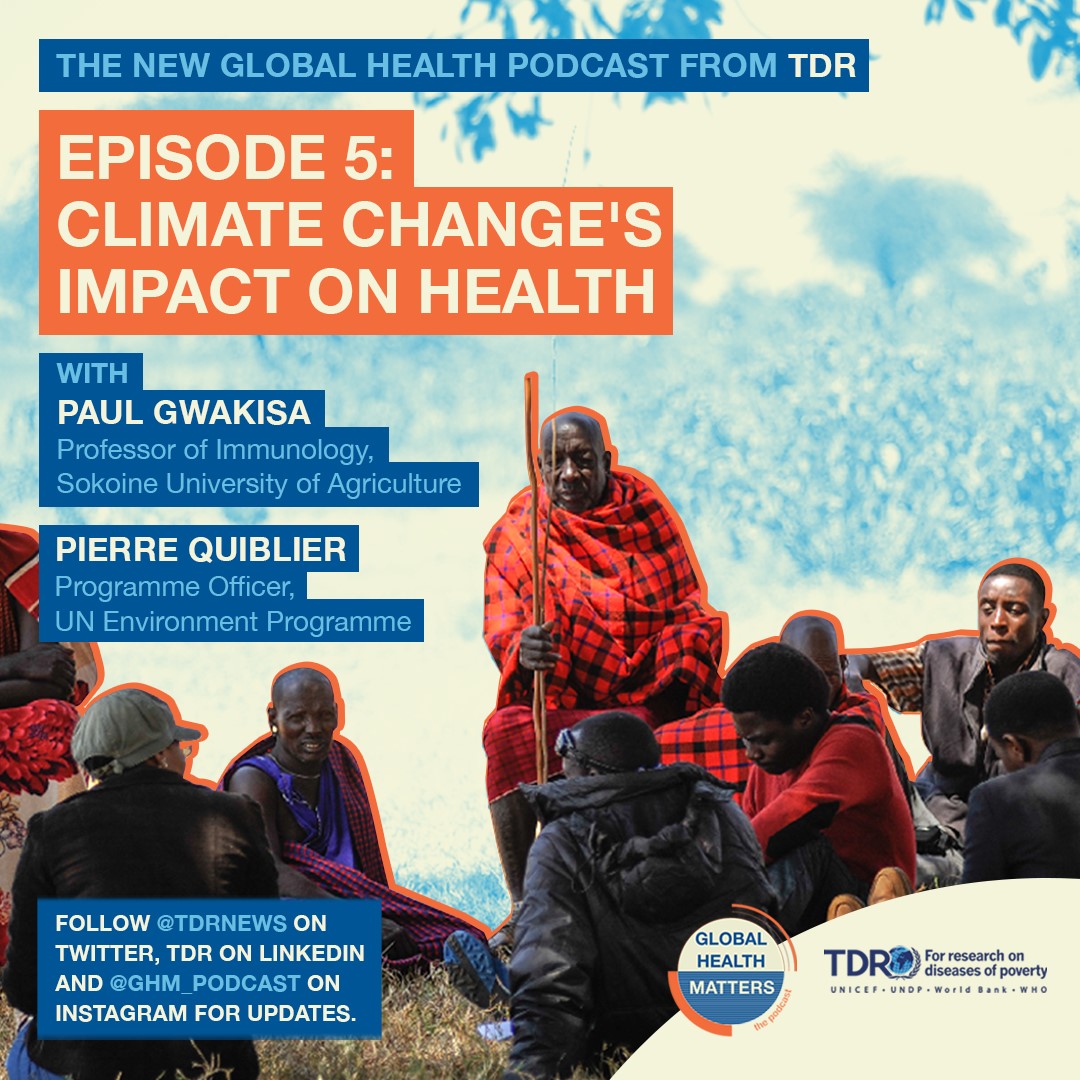TDR’s focal point for vectors, Dr Florence Fouque, was invited to contribute to a round table meeting titled “Global warming and the next pandemic: the growing pest threat” at the 27th session of the Conference of the Parties (COP 27) (the UN Climate Change Conference) held in Sharm-El-Sheikh, Egypt, in November. The discussion has helped TDR identify gaps in knowledge and areas of research that could be supported; the meeting also provided TDR with an opportunity to inform attendees of TDR's activities in this area.
The round table meeting, held as side-event on Thursday 10 November 2022 and hosted by Goals House, focused on the link between climate change and the growing threat from pests (including disease-transmitting vectors such as mosquitos and flies as well as pests that may harm crops and lifestock). (Goals House is a community of public and private bodies committed to help the achievement of the UN Sustainable Development Goals [SDGs]). The meeting explored how to respond to the threat and included discussions on the urgent need to find new ways to reduce disease transmission, improve pandemic preparedness, and ensure an integrated approach to climate and health.
World-leading experts from other global institutions also contributed to the discussion, including representatives from the World Health Organization (WHO), the Bill & Melinda Gates Foundation, the London School of Hygiene & Tropical Medicine (LSHTM), Wellcome, the National Public Health Institute of Liberia (NPHIL) and the Indian Ministry of Health and Family Welfare.
As well as discussing the range of issues raised by climate change in relation to pests, and how they might be tackled effectively, participants also explored the role of entrepreneurship to drive innovative solutions and the development of new technologies.
Main challenges to mitigating the impact of climate change on vector-borne diseases include: a lack of knowledge about the biological responses by vectors to global warming and the need for more research; the need to establish multidisciplinary and multisectoral approaches to address issues (with enhanced interactions with private sectors); and the establishment of standards to improve data sharing.
The COVID-19 pandemic has highlighted the importance of pandemic preparedness, and the need for global network of experts – one of the key lessons learnt from the pandemic – was also raised.
“Climate change will affect the ecology and behavior of insect vectors of diseases in an unpredictable way, so it is important that we understand more about the changes and their impact on the transmission of vector-borne diseases and get better prepared. The round table discussion brought into focus the importance of research and multidisciplinary and multisectoral thinking, all of which form part of TDR’s work,” said Dr Fouque.
For more information, please contact: Dr Florence Fouque


